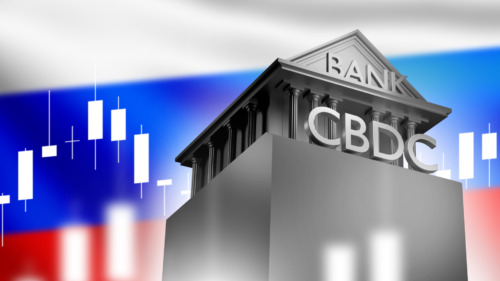Snowden Claims CBDCs ‘Deny People Ownership of Their Money’

Edward Snowden, a former consultant to the US National Security Agency (NSA) and exiled privacy advocate, is well known for his stance against government surveillance. He recently suggested that China banning Bitcoin was a good thing, and this past week wrote that CBDCs are not, “as Wikipedia might tell you, a digital dollar”.
CBDCs – It Isn’t What They Tell You It Is
Snowden is unambiguous in his view that CBDCs, as advertised, are not what they appear to be. They are not, he argues, a “digital dollar”, nor are they an example of a “state-level embrace of cryptocurrency”.
Instead, a CBDC is something closer to being a perversion of cryptocurrency, or at least of the founding principles and protocols of cryptocurrency – a cryptofascist currency, an evil twin entered into the ledgers on Opposite Day, expressly designed to deny its users the basic ownership of their money and to install the State at the mediating centre of every transaction.
Edward Snowden
He jokingly refers to the US dollar as a “napkin” and says that “once that napkin is securely stowed away in your purse – or murse – the bank no longer gets to decide, or even know, how and where you use it”. This of course stands in stark contrast to a CBDC, where the state intermediates or “imposes itself in the middle of every last transaction”.
Banks Are Threatened by Crypto
Snowden recognises that cryptocurrencies, due to their decentralised nature, are “regarded by both central and commercial banks as dangerous disintermediators; precisely because they’ve been designed to ensure equal protection for all users, with no special privileges extended to the State”.
These upstart crypto-competitors represent an epochal disruption, promising the possibility of storing and moving verifiable value independent of State approval, and so placing their users beyond the reach of Rome.
Edward Snowden
CBDC proponents argue that it will make everyday transactions safer (by removing counterparty risk), and easier to tax (by rendering it impossible to hide money from the government). However, Snowden is deeply sceptical, suggesting it is merely evidence of an ever-encroaching surveillance state.
Opposition to such free trade [crypto] is all-too-often concealed beneath a veneer of paternalistic concern, with the State claiming that in the absence of its own loving intermediation, the market will inevitably devolve into unlawful gambling dens and fleshpots rife with tax fraud, drug deals, and gun-running.
Edward Snowden
It’s Closer Than You Think
If the idea of governments intermediating every single transaction sounds dystopian but something for your future self to be concerned about, be warned – it’s already here.
Last week, the IMF confirmed that more than 110 nations are currently involved in developing or experimenting with CBDCs. These include countries such as Australia and New Zealand. Unsurprisingly, China leads the pack and has confirmed it is embracing smart contracts in its CBDC – no doubt this will be integrated into its social credit system.
Even critics would acknowledge that CBDCs have practical benefits. That isn’t really the question that matters. Instead, we should be asking whether (and how) CBDCs are able to operate in a manner that is consistent within a Western liberal democratic framework premised on human rights.






